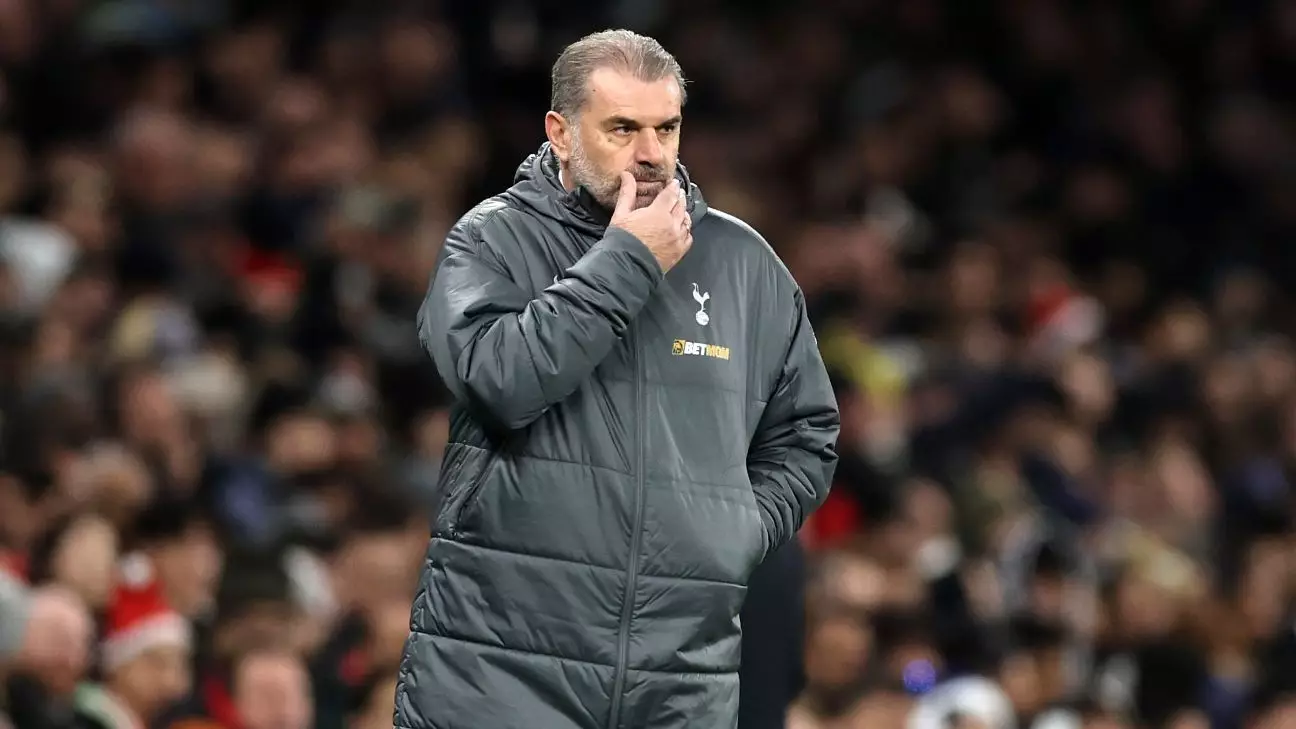The recent evolution of European competitions is reshaping how clubs approach player recruitment, especially during the January transfer window. With the Champions League expanding its group stage to include eight matches instead of six, and the Europa League’s conclusion now scheduled for late January, clubs like Tottenham Hotspur, under the stewardship of Ange Postecoglou, are facing unique challenges. Not only does this extension add to the packed schedules of teams, but it complicates the transfer market dynamics, making it harder for managers to strengthen their squads effectively.
Postecoglou’s reflections on this new reality highlight specific concerns about the team’s current state. Having been forced to deploy a makeshift lineup due to the absence of ten key players during a recent match against Liverpool, the coach is acutely aware of the pressing need for reinforcements. The prospect of signing new players while existing injuries and suspensions remain an issue raises significant questions: Can the Spurs find the quality they need amid a competitive market? Postecoglou’s cautious optimism suggests that while improving the squad’s overall depth may be feasible, enhancing the starting eleven could prove to be a more complicated task.
Moreover, the usual January window, typically seen as an opportunity for clubs to offload surplus players, may not have the same benefits this time around. The absence of clubs already out of European contention changes the usual flow of transfers, potentially limiting the available pool of players who could be offloaded by their current clubs.
Tottenham’s management is clear about its objectives moving forward. With aspirations to secure at least one defender to shore up the backline, the club is simultaneously eyeing potential attacking reinforcements for the long-term future. Despite being linked to players like Atalanta’s Ben Godfrey, the noise around such transfers can often muddle the decision-making process. The realities of January transfers, combined with Postecoglou’s knowledge of the current market limitations, requires a blend of strategic foresight and quick adaptability.
As the January window approaches, one crucial aspect will be the players’ availability and willingness to join Tottenham, particularly considering the positioning of their current clubs in European competitions. Postecoglou’s insight into the transfer landscape suggests he understands these nuances, which can sway negotiations significantly.
Despite the hurdles, the Spurs have reasons to feel hopeful. Key players like Destiny Udogie and Rodrigo Bentancur, who have faced recent fitness issues or suspensions, are set to return for pivotal matches. Their presence can help alleviate some of the pressure on the squad and potentially allow Postecoglou to make more calculated decisions during the transfer window.
The Spurs’ situation underscores a broader trend in football. Clubs must now navigate an increasingly complex and competitive market, introducing new variables that affect strategy and outcomes. For teams like Tottenham, it will be a crucial winter—one that defines not only this season but also sets the tone for future endeavors as they seek to build a competitive squad ready for the challenges of modern football.

